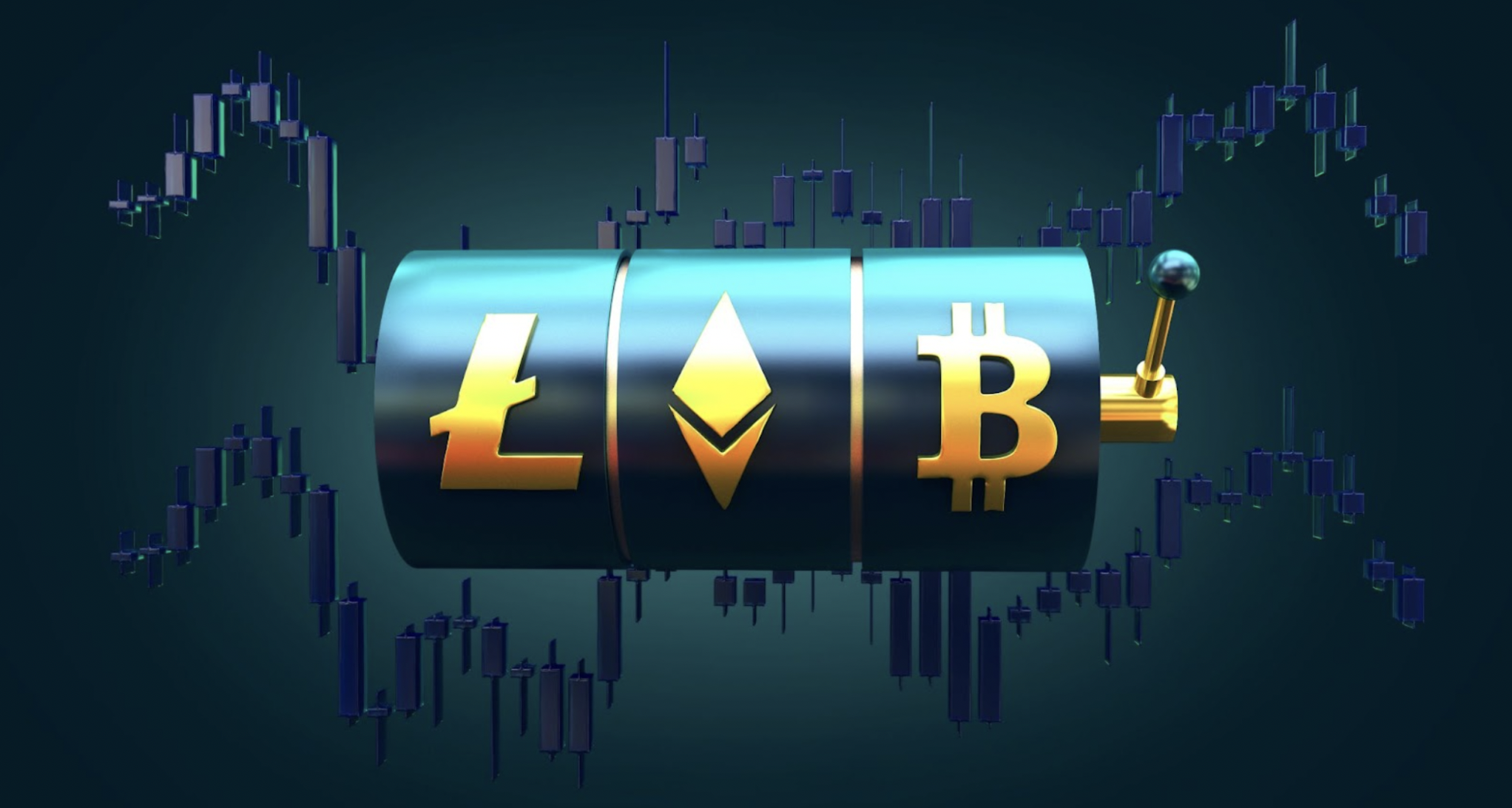There are several ways that bitcoin investors can participate in the market. Bitcoin can be bought on dedicated exchanges or via peer-to-peer marketplaces. Some of the largest exchanges include Binance, Coinbase, and LocalBitcoins. You can also trade bitcoin in the futures market on the U.S. derivatives exchanges CBOE and CME. In this article, you will discover what bitcoin futures are and learn about some of the advantages of these instruments.
Understanding Futures Contracts
Before we begin our discussion of bitcoin futures, we should first take a moment to understand what a futures contract represents.
A futures contract is an agreement to buy or sell a particular asset at a specified price and at a specific date in the future.
Futures traders can either take a long position to buy a contract if they believe that the price of that specific asset will rise in the future or take a short position to sell a contract if they believe that the price of that specific asset will fall in the future.
Generally, futures products can be settled in one of two ways: cash or physically settlement. In the case of bitcoin futures, we won’t actually take delivery of the cryptocurrency but instead, the trade will be settled in cash within our brokerage account with either a credit if we made a profitable trade or a debit if we made a losing trade.
There are many different reasons why market participants engage in the futures market. Two of the main reasons include hedging and speculation. Hedgers try to reduce their overall risk of adverse price moves in the asset. They often do this by trying to lock in the current price of the asset if they believe that prices are likely to head higher in the future.
 Let’s take a look at how a hedger would utilise the futures market using a Clothing manufacturer as an example. Our clothing manufacturer needs to purchase large quantities of cotton as part of their production process. The price of cotton may be trading at that time at $90 per contract and the contract specification for CT (Cotton) is 50,000 lbs. of cotton per contract, and the minimum price move is $5 per point (1/100 of a cent).
Let’s take a look at how a hedger would utilise the futures market using a Clothing manufacturer as an example. Our clothing manufacturer needs to purchase large quantities of cotton as part of their production process. The price of cotton may be trading at that time at $90 per contract and the contract specification for CT (Cotton) is 50,000 lbs. of cotton per contract, and the minimum price move is $5 per point (1/100 of a cent).
The clothing manufacturer requires 10,000,000 lbs. for the next 6 months. This company who is considered a commercial interest has vast knowledge of the industry, and they have come to believe that the price of cotton is likely to rise substantially over the next 6 months to about $110 per contract. So, they decide that they should lock in the current price of cotton now at $90. They purchase 200 contracts of Cotton in the futures market to cover their requirements and lock in the current price.
If after six months later, the price of cotton rises to $110 per contract as they had anticipated, then they could have saved approx. $2,000,000 in the raw cost of cotton.
(110-90 = 20 x 100 = 2000 point move per contract x $ 5 point value = $ 10,000 per contract x 200 contracts) = $ 2,000,000.
The second major type of participant in the futures market is the speculator who is looking to make a profit from potential price swings, either up or down but is not interested in taking delivery of the traded contract. They are simply looking to buy low and sell high, or sell high and then buy back lower.
How to Trade Bitcoin Futures
Due to the huge volatility that bitcoin prices often experience, the margin requirements are typically much higher for bitcoin futures contracts as compared to other financial instruments. But regardless, futures traders can still take advantage of some additional leverage by trading bitcoin futures contracts.
We will discuss two major exchanges for trading bitcoin Futures. This includes the Chicago Board of Exchange (CBOE) and the Chicago Mercantile Exchange (CME).
Bitcoin futures opened for trading on the CBOE in early December 2017. Later that month, the CME made their debut into this market by offering their own bitcoin futures contracts. This was a big step forward for bitcoin enthusiasts. It marked an important transition in the minds of traders and investors. Instead of being considered as something on the fringe, bitcoin became more mainstream and more widely accepted. One of the reasons for this is that with the backing from both these major derivative exchanges, it brought about more transparency and liquidity into the market for bitcoin traders and investors.
There are some major differences between the bitcoin futures contract listed on the CBOE (symbol XBT) and the bitcoin futures contract listed on the CME (symbol BTC).
Let’s discuss some of the key differences:
Contract Size: XBT is equal to 1 bitcoin, BTC is equal to 5 bitcoins.
Minimum Price Fluctuation: XBT $10, BTC is $ 25
Minimum Margin Rates: XBT 40%, BTC 35%
Clearing: XBT is cleared by Options Clearing Corporation, BTC is cleared by CME ClearPort
Advantages of Bitcoin Futures
 There are many advantages for bitcoin investors who are interested in speculation to get involved in the market through the use of bitcoin futures contracts.
There are many advantages for bitcoin investors who are interested in speculation to get involved in the market through the use of bitcoin futures contracts.
Here are four major reasons why cryptocurrency traders and investors should consider bitcoin futures.
Better Liquidity – In the financial markets, liquidity is everything. You want to be able to buy and sell with minimal transaction costs and slippage. Trading bitcoin futures allows investors to obtain tight bid-ask spreads facilitated by the exchanges.
Increased Transparency – One of the biggest challenges for the bitcoin industry has been providing a high level of transparency and uniformity. Bitcoin futures contracts help solve this problem as each day the contracts are settled using a reference price.
Ability to Sell Short – When you participate in the futures market you can make money from both up moves and down moves. This is an excellent feature of the futures market. So, as a bitcoin speculator, you can buy low in anticipation of higher prices or you can sell high first and buy lower at some later point in anticipation of lower prices.
Regulated Exchanges – Although the word “regulation” tends to cause many bitcoin enthusiasts to twitch when it comes to speculating, some level of regulation may not be so bad after all. The bitcoin futures contracts that we have discussed are regulated by the CFTC (Commodity Futures and Trading Commission). This has helped to bring more mainstream investors into the Bitcoin market, and the volume on these instruments has subsequently increased. This is a good thing, as greater volume and acceptance will provide for better liquidity and efficiency for speculators.
Summary
You should now have a good understanding of what bitcoin futures contracts are and how to get started with trading these instruments. It is important to keep in mind that bitcoin futures typically offer additional leverage, and so they should be traded responsibly with a keen eye on risk control.
This article was contributed by Vic Patel of Forex Training Group. He is a full-time trader with many years of experience in both the Foreign Exchange and Futures markets.

 Features3 years ago
Features3 years ago
 Bitcoin2 years ago
Bitcoin2 years ago
 Features3 years ago
Features3 years ago
 Features3 years ago
Features3 years ago
 Features3 years ago
Features3 years ago
 Features3 years ago
Features3 years ago
 Features8 months ago
Features8 months ago
 Bitcoin10 months ago
Bitcoin10 months ago

 Let’s take a look at how a hedger would utilise the futures market using a Clothing manufacturer as an example.
Let’s take a look at how a hedger would utilise the futures market using a Clothing manufacturer as an example. There are many advantages for
There are many advantages for 






